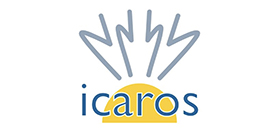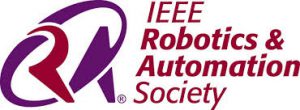Announcements
CALL FOR PAPERS
(CFP available for download here)
The boundaries between Computer Science, Artificial Intelligence, and Robotics are continuing to be softened. On one hand computers are continuing to be humanized and a large number of cyber-physical systems are being developed to act upon the physical world. On the other hand the robotic community is looking into the robots of the 21st century that are versatile computing machines with high social impact potential, such as enhance transportation safety, reduce agricultural pesticide use, and improve public safety and crime-fighting efficacy, among other things. The barriers that restrain their diffusion significantly correlate to the complexity of developing their software control systems, which must be reliable, maintainable, intelligent, and safe.
Robotic Computing (RC) addresses the synergetic interaction of computing technologies and robotic technologies. The synergy between Robotics, Artificial Intelligence, and Computer Science is both realistic and strategic. Their mutual benefit is to make it possible to build and evolve new robotic systems, to reduce their development cost, and to enhance their quality.
The Third IEEE International Conference on Robotic Computing (IRC 2019, aka Robotic Computing 2019) is inviting high quality research papers addressing the synergies between Computer Science, Artificial Intelligence, and Robotics in all applications:
Topics related to Computer Science
- Formal methods for analysis and design
- Software architectures
- Middleware infrastructures
- Model-driven engineering
- Component-based engineering
- Software product line engineering
- Data, ontology, and knowledge engineering
- Autonomic computing
- Service oriented computing
- Cloud computing
- Multimedia computing
- Internet of Things
- Virtual reality
- Computer security
Topics related to Artificial Intelligence
- Natural language understanding
- Machine learning
- Reasoning
- Multi agent system
- Context and intention awareness
- Affective computing
- Conversational computing
- Planning
- Problem solving
- Semantic computing
- Knowledge representation
- Human computer interaction
Topics related to Robotics
- RAMS abilities of robotic systems
- Hardware modeling and abstraction
- Resource awareness
- Sensor fusion, integration
- Place recognition, localization
- Object recognition, tracking
- Scene interpretation
- Robot cognition
- Manipulation, grasping
- Robot kinematics, dynamics
- Motion planning, control
- Navigation
- Task planning, monitoring
- Human-robot Interaction
- Robot simulation
- Multi-robot systems
Sponsors





